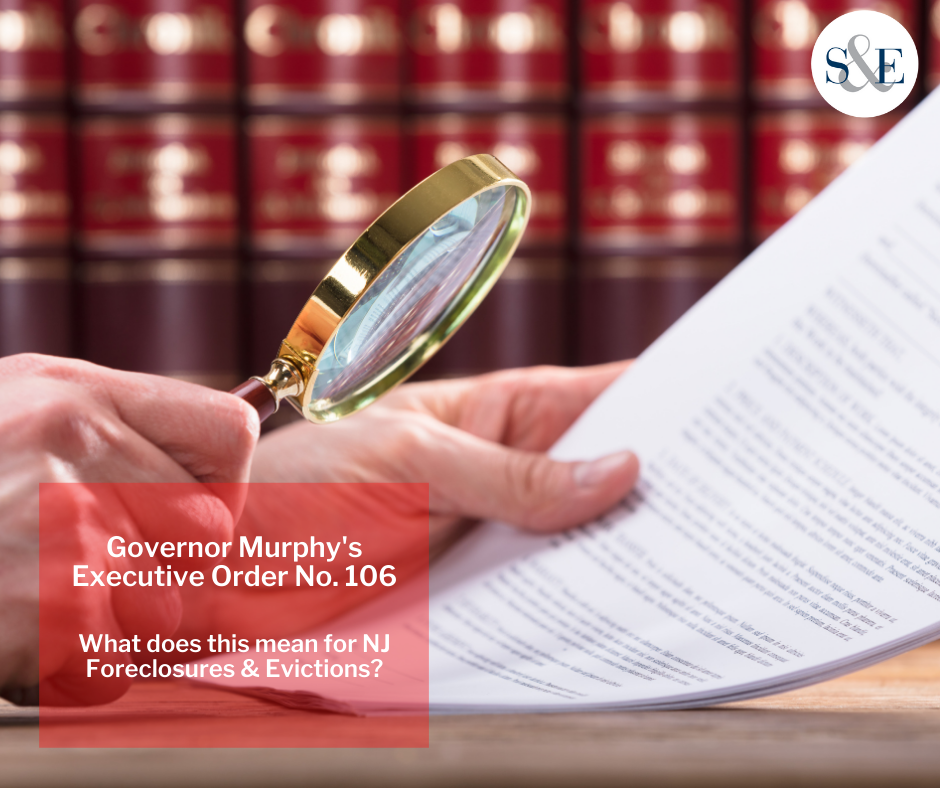By: Salvatore Carollo, Esquire, Senior Litigation Attorney

Beginning with Governor Murphy’s Executive Order No. 106, every county sheriff in New Jersey has either cancelled or suspended scheduled foreclosure sales and refused to schedule new sale dates. Most sheriffs have taken the position that the executive order prevents them from enforcing all judgments for possession, warrants of removal and writs of possession involving residential properties. However, there is significant debate as to whether the operative language incorporated in Gov. Murphy’s Order legally prohibits foreclosure sales from being scheduled and taking place and if the removal protections in the order are being exploited by individuals who neither rent nor own residential properties.
Specifically, the text of Executive Order No. 106 directs that any lessee, tenant, homeowner or any other person shall not be removed from a residential property as the result of an eviction or foreclosure proceeding. While the executive order is quite clear that lockouts resulting from eviction proceedings are expressly prohibited, the same cannot be said for foreclosure sales since a sheriff’s sale in and of itself does not directly result in the occupant(s) being removed from the property. Despite this ambiguity, New Jersey sheriffs have seemingly adopted the more conservative approach that Executive Order No. 106 and Gov. Murphy’s subsequent orders extending the public health emergency have created a state wide moratorium on both the scheduling and holding of foreclosure sales.
The plain language of Executive Order No. 106 defines “residential property” as any property rented or owned for residential properties. The clear intent of the Order is to prevent the removal of individuals from residential properties through the eviction or foreclosure processes during the time the Order is in effect. Yet, there is a sizable group of individuals occupying residential properties in our State that neither own nor rent these properties. These individuals have traditionally been referred to as “squatters” and arguably fall outside the moratorium protections. Regardless, our courts and law enforcement officers are often unwilling or unable to make this distinction and have opted rather to provide blanket coverage for these individuals. Fortunately, the executive order has carved out an exception to allow for removal of individuals from residential properties if the court determines on its own motion or motion of the parties that enforcement “is necessary in the interest of justice.” By including this language, at a minimum, there is a mechanism in place to ensure that potentially dangerous or criminal behavior by illegal occupants is not permitted to continue unchecked at certain residential properties.
